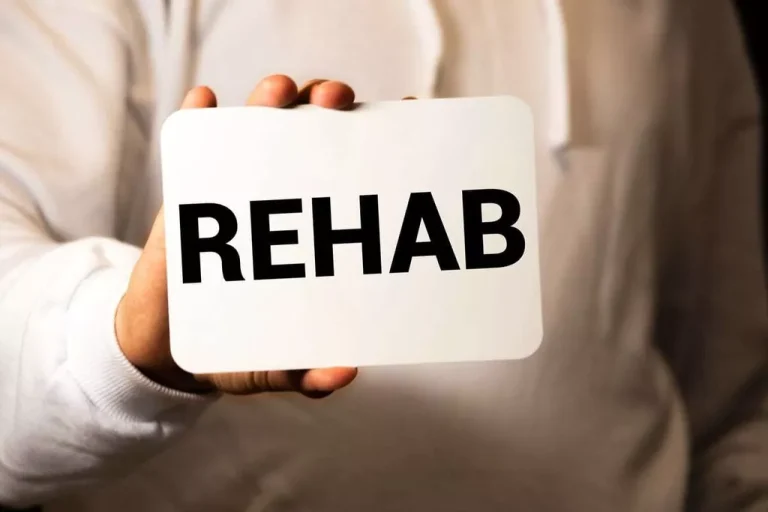
You should plan to taper for between three and seven days depending on how much you’re used to drinking. Slowly reduce the amount of alcohol you consume each day until you reach sobriety. If you begin to experience serious withdrawal symptoms, drink enough to make the symptoms subside. If you’re addicted to alcohol, it’s unlikely that you’ll be able to recover without some form of addiction treatment. You may be able to detox at home and recover from alcoholism with the help of support groups such as Alcoholics Anonymous. However, medically supervised detox and professional rehab are more likely to help you maintain long-term sobriety.
Detox Programs That Help With Alcohol Withdrawal
- If The Recovery Village is not the right fit for you or your loved one, we will help refer you to a facility that is.
- Generally, alcohol-free days are better towards the end of a gradual reduction, not towards the beginning.
- In addition, home detox may not be effective, appropriate, or safe.
- Expect to feel some discomfort, including anxiety, sweating or irritability.
- The amount of time it takes to taper off of alcohol can vary greatly from person to person.
She enjoys interviewing medical experts and researchers about their work and is passionate about communicating accurate and relevant health information to the public. To the best of our knowledge, all content is accurate as of the date posted, though offers contained herein may no longer be available. The opinions expressed are the author’s alone and have not been provided, approved or otherwise endorsed by our advertisers. If you tend to drink too much whenever there is any alcohol in the house, get rid of it altogether, the NIAAA recommends.
- Understanding the severity of alcohol withdrawal underscores the importance of seeking professional help and support when trying to wean off alcohol.
- Keep a list of emergency phone numbers on hand that includes contact info for your doctor, the police, a nearby hospital, and someone you trust.
- There’s a reason you’ve reached the decision to quit or cut back.
- By looking at your medical history and alcohol intake, your doctor can determine whether you need to taper in a medical detox facility or can safely detox at home.
Medically Reviewed by
Educate your loved ones on dangerous symptoms, too, so they can look out for you and get you medical attention if you need it. Give your loved ones as much information as you can about your self-tapering strategy. Let them know your plan, your progress, and how withdrawals are going for you. By Buddy TBuddy T is a writer and founding member of the Online Al-Anon Outreach Committee with decades of experience writing about alcoholism. Because he is a member of a support group that stresses the importance of anonymity at the public level, he does not use his photograph or his real name on this website.
- Most healthcare professionals recommend a medically-assisted detox as the best way to get off alcohol.
- Alcohol rehab helps you taper off alcohol, and it treats other side effects and causes of alcoholism.
- However, it might spread out the withdrawal symptoms over a longer period of time.
- It is advisable to consult with a healthcare professional or addiction specialist to determine the most appropriate program for individual needs.
- Whether you’re thinking about tapering off or going cold turkey, it’s crucial to understand the implications of both approaches and which strategy is likely the safest and most effective.
Tapering Off Alcohol
It can mean more time for your other interests, and even new interests. More time to meet new people, catch up with old friends and try new things. Having a plan can help you stay on track and it can keep you safe. One of the keys to a successful taper is taking gradual steps that will cause as few side effects as possible. Many insurance companies will help pay for some or all of your treatment costs. BetterHelp offers affordable mental health care via phone, video, or live-chat.

Tapering or Weaning Off Alcohol

Tapering will normally create less severe alcohol withdrawal symptoms but will spread them out over a prolonged period. Essentially, tapering provides less intense withdrawal symptoms but over a longer amount of time. If you properly taper your alcohol use, you’re less likely to experience alcohol withdrawal symptoms. Gradually reducing the amount of alcohol you drink can help give your body the time it needs to adjust to the lack of alcohol.
- The information we provide is not intended to be a substitute for professional medical advice, diagnosis or treatment.
- Finally, just because you’ve gotten past the withdrawal phase doesn’t mean you won’t continue to face psychological aspects of addiction—including alcohol cravings and drinking triggers.
- This helps to minimize withdrawal symptoms and make the process more manageable, particularly for individuals who have been consuming alcohol regularly and in higher quantities [3].
- If you are struggling with severe alcohol use or addiction, tapering off alcohol at home may not be a safe option.
- Someone who has been drinking heavily for a long period may struggle with cravings and alcohol withdrawal symptoms, leading to relapse.
- Individual therapy sessions provide a safe space to explore personal challenges, develop healthier coping mechanisms, and work towards personal growth.
Letting others know about your choice to stop drinking may help motivate you to stick with your decision. From month-long sobriety challenges to the Sober Curious movement, https://ecosoberhouse.com/ more and more people are taking a closer look at the role alcohol plays in their lives. Instastly check if your insurance covers treatment at The Recovery Village.
However, you may experience withdrawal symptoms or relapse if you’re not tapering correctly and safely. Talk with a healthcare professional if you’re concerned you may experience detox symptoms when quitting drinking or cutting back. An alcohol taper is a way to wean yourself off alcohol and avoid withdrawal symptoms. Although all forms of alcohol cessation should be done with medical guidance, tapering your alcohol intake may allow you to self-wean from drinking at home.

There are medications and treatments available that can help you get through those first early days of no alcohol consumption. The best way to quit alcohol while avoiding unpleasant withdrawal symptoms is to ask for help. If you have decided that it is in your best interest to stop drinking, one option is to seek help from a family doctor or primary healthcare how to taper off alcohol provider. If you drink alcohol and are thinking about quitting, it is important to make sure you do so safely. One potential way to quit drinking is through tapering, which involves slowly reducing your alcohol intake over time. This method works best with gradual reduction, as alcohol withdrawal symptoms can start within 12–24 hours after stopping drinking.
How to safely taper off your alcohol consumption
This will help you establish a baseline from which to start reducing your intake. It’s important to be realistic about your drinking habits and not underestimate the amount of alcohol you consume. If you’ve confirmed it is safe for you to wean off alcohol at home, set goals for yourself and make a plan as to how you will achieve those goals.